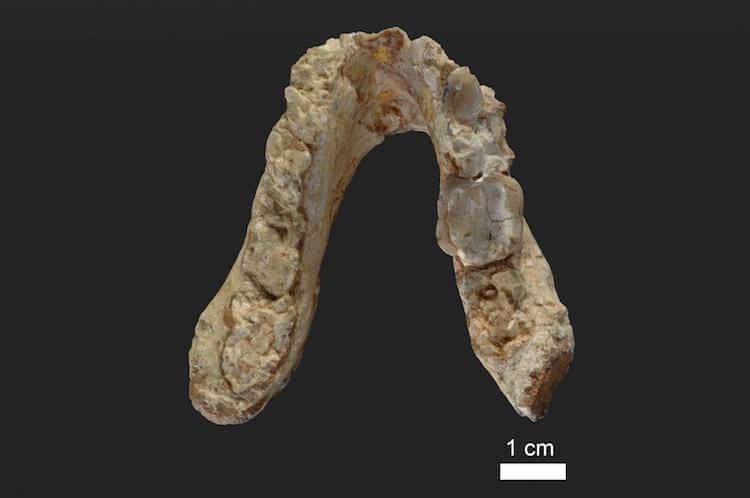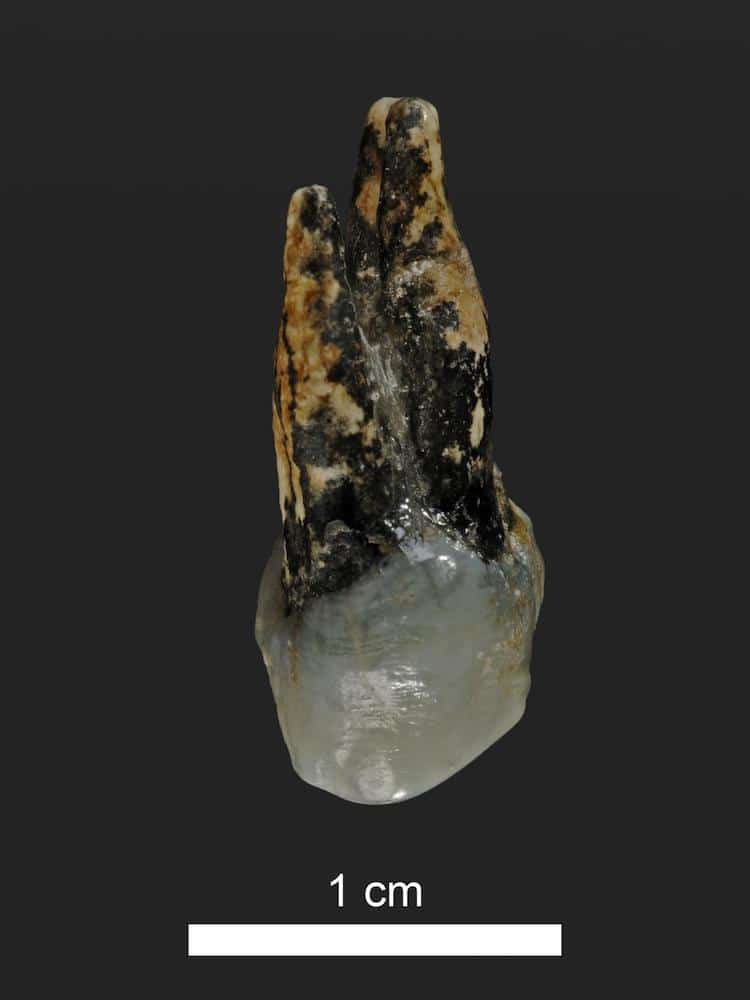
Credit: Pritesh Rane
While it's commonly thought that hominins—a tribe that eventually led to modern humans—originate from Africa, a new study is casting doubt on the theory. A group of researchers recently published two studies that give evidence that early man may have originated from Europe, bucking the theory of African origins that dates back to Charles Darwin.
The international research team published two papers in PLOS One pointing to the Balkans, specifically Greece, as a possible starting point for humanity. The evidence? Two fossil specimens, one of a lower jaw from Greece and an upper molar from Bulgaria, which were determined by researchers to be from pre-humans. Specifically, the scientists maintain that they belong to Graecopithecus freybergi. This species is “several hundred thousand years older than the oldest potential pre-human from Africa, the six to seven-million-year-old Sahelanthropus from Chad.”
Apes and humans are thought to share a common lineage until five to seven million years ago, but these findings could indicate that the split occurred hundreds of thousands of years earlier, in Europe.
“Our discovery outlines a new scenario for the beginning of human history—the findings allow us to move the human-chimpanzee split into the Mediterranean area,” states Dr. David Begun, a paleontologist from the University of Toronto who co-authored one of the articles. “These research findings call into question one of the most dogmatic assertions in paleoanthropology since Charles Darwin, which is that the human lineage originated in Africa.”

The lower jaw of the 7.175 million-year-old “Graecopithecus freybergi” from Pyrgos Vassilissis, Greece (today in metropolitan Athens). Photo: Wolfgang Gerber, University of Tübingen
“It is not a matter of continental bragging rights. It is critical to know where the human lineage arose so that we can reconstruct the circumstances leading to our divergence from the common ancestor we share with chimpanzees. Not having this information is like having a crime without the crime scene.”
But don't go changing the textbooks just yet. Since the studies were released in May 2017, some of the scientific community has remained skeptical about their impact, citing the high number of pre-human fossils found in Africa versus the two specimens in the studies.
Dr. Julien Benoit, a vertebrate paleontologist and palaeobiologist who has worked extensively in Africa, has his reservations about the impact of the findings. He points to the thousands of fossils discovered in Africa since the 1920s, which trace a clear evolutionary line, as one piece of solid evidence maintaining Africa as the continent of human origin. Another reason is the quality of the European fossils.
“The material isn’t well preserved. It consists mostly of a jaw with no complete teeth preserved. That's a problem because the teeth's anatomical characteristics are the most important element when classifying any primate, including humans,” Dr. Benoit explains.

A 7.24 million-year-old upper premolar of Graecopithecus from Azmaka, Bulgaria. Photo: Wolfgang Gerber, University of Tübingen
“The authors claim that the jaw's fourth premolar root is similar to that of a hominin's. This is not a character that is conventionally used in palaeoanthropology, especially because not all hominins have similar tooth roots. This character is rather variable—and the authors go on to acknowledge this—so it's unreliable for classification.”
Instead, Benoit sees the findings as evidence of a parallel evolution, where one species evolves in a similar fashion to another but is not related, such as dolphins and fish. For Benoit, Graecopithecus and hominins could be a similar case. John Hawkes, a paleontologist and professor at the University of Wisconsin shares similar views.
So while we may not want to throw out our old evolutionary theories, the new studies are exciting. Giving new clues about our evolutionary history, they are just one of many keys needed to unlock the mystery of our origins, which seem to still point to Africa as a destination. In fact, John Cole, Senior Lecturer in Archaeology at the University of Brighton in the U.K. points out that, if anything, the study demonstrates how much we still need to discover, and that there is certainly a possibility that man could have originated from Europe.
“It’s certainly not impossible that this is the case. The rate we are finding out about our hominin ancestors in terms of their evolutionary story over the last five years has been absolutely phenomenal. What it probably shows us if anything is that we don’t know an awful lot.”
Related Articles:
Scientific Sculptures of the Evolution of Human Faces
Clever Variations of Evolution’s March of Progress
Researchers Discover 100-Million-Year-Old Bird Wings Preserved in Amber






















































































